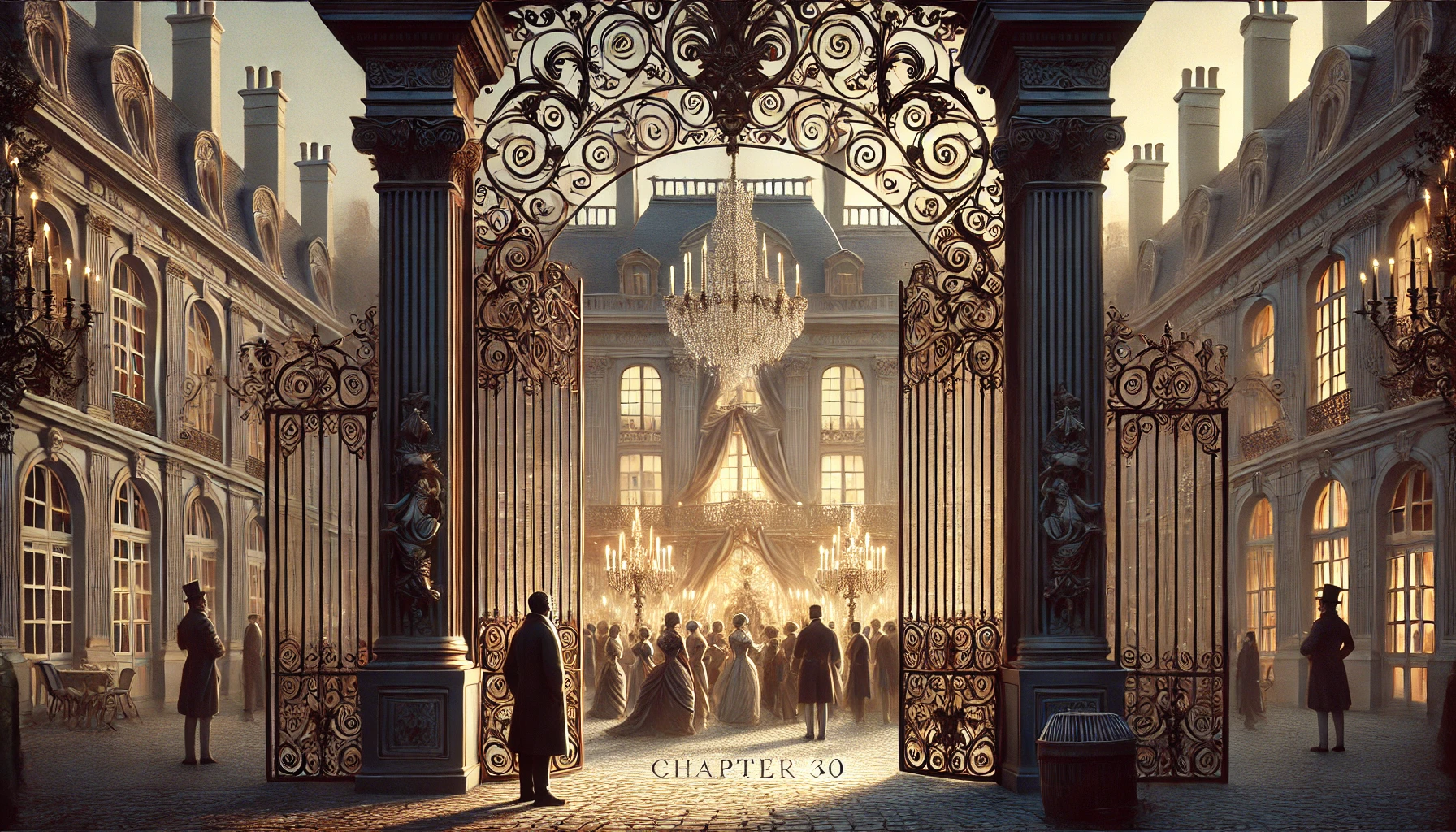Chapter 30 — The Faubourg of St. Germain
byChapter 30 – The Faubourg of St. Germain begins with a portrayal of Paris’s most guarded social enclave—a bastion of aristocracy that, much like the ancient Chinese elite, regards outsiders as unworthy of inclusion. The Faubourg of St. Germain, synonymous with old nobility and unyielding tradition, remains a stronghold where lineage trumps wealth and historical legacy overshadows personal achievement. Despite significant political shifts and even imperial efforts by Napoleon III and his consort Eugenie to bridge the gap between monarchy and nobility, the Faubourg has refused to democratize its society. Eugenie’s admiration for Marie Antoinette and her nostalgic reverence for royal customs led her to court these aristocrats through social gatherings and architectural mimicry, yet her efforts were met with polite resistance.
Over time, various groups have tried to gain access to this world, but most fail to penetrate its core. Wealthy Jewish families, with vast fortunes and social finesse, temporarily found space at the margins. However, even with strategic marriages and immense financial investment, they ultimately withdrew, realizing that titles acquired this way were more burdensome than rewarding. The English, with their traditionally pragmatic outlook, have typically avoided such pursuits, preferring instead to observe without engaging in the exhausting and often fruitless chase for recognition. On the other hand, American women—especially those from affluent backgrounds—have shown a consistent and determined desire to breach these social walls, lured by the prestige and mystique that surrounds the Faubourg.
Despite their persistence, most Americans only reach the periphery of this aristocratic society. The cultural divide, compounded by language, etiquette, and a deeply ingrained social code, renders full integration nearly impossible for those without ancestral ties. Even those who marry into nobility find themselves alienated from their roots, often required to surrender their native identities to fully belong. The French legal system, which does not formally recognize noble titles, ironically strengthens this exclusivity by making social distinction an unwritten but fiercely maintained tradition. Integration thus becomes more a personal transformation than a social achievement, with the American spouse adapting to centuries-old rituals rather than altering the structure itself.
In contrast to the rigid framework of the Faubourg, English society appears fluid and comparatively inclusive. There, wealth, merit, and even personal charm can open doors once closed. But in Paris, such factors are secondary to heritage, and acceptance into the true inner circles depends not on what you possess, but on who your ancestors were and how well you conform to the customs handed down through generations. The French aristocracy remains aloof not due to hostility but from a deeply ingrained belief in preserving continuity. Social change, no matter how fashionable or politically supported, is seen as disruptive rather than progressive within this context.
Americans, particularly women, are often drawn to the allure of this world due to its perceived glamour, refinement, and historic weight. The appeal is not just the title, but what the title represents—connection to something timeless and unshakably elite. However, this fascination often masks the reality: membership comes at the cost of individuality. Once inside, American women are no longer recognized by their achievements or personalities but by their compliance with old-world expectations. The chapter subtly critiques this loss of self, warning that the desire to belong to such a rigid structure may lead to personal erasure.
While a few manage to establish a place within the Faubourg, these instances are exceptions, not norms. The old aristocracy continues to survive because it adapts only when absolutely necessary, maintaining its essence through quiet resistance. Titles, family estates, and social codes are passed down not for show, but as symbols of endurance. In a world obsessed with reinvention, the Faubourg thrives on sameness. That sameness, while beautiful in its tradition, is also what isolates it.
In closing, the narrative paints a layered portrait of the Faubourg of St. Germain—not simply as an exclusive society, but as a symbol of deep-rooted cultural resistance. It is not merely a social class, but a philosophy of belonging that resists the churn of modern ambition. Its walls, both literal and symbolic, were never built for the sake of exclusion alone but for the preservation of a legacy that sees itself not as superior but as irreplaceable.


